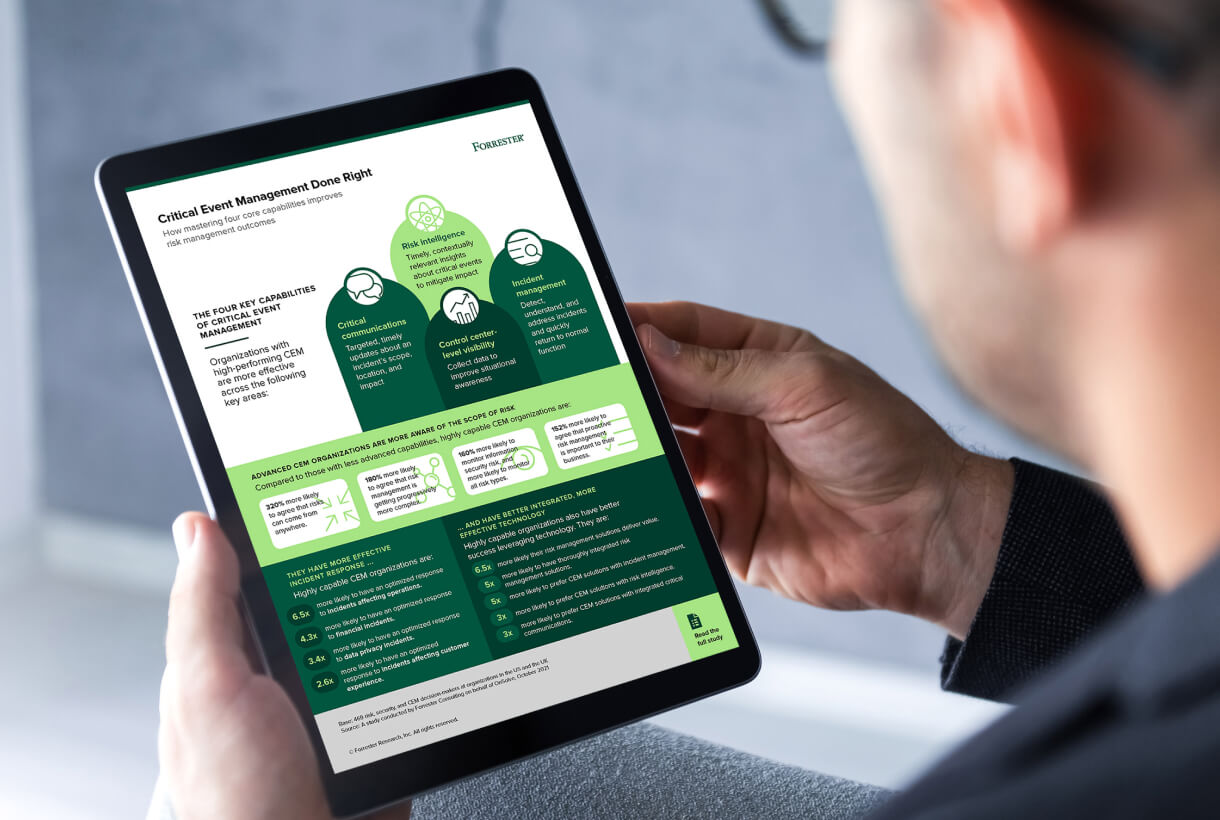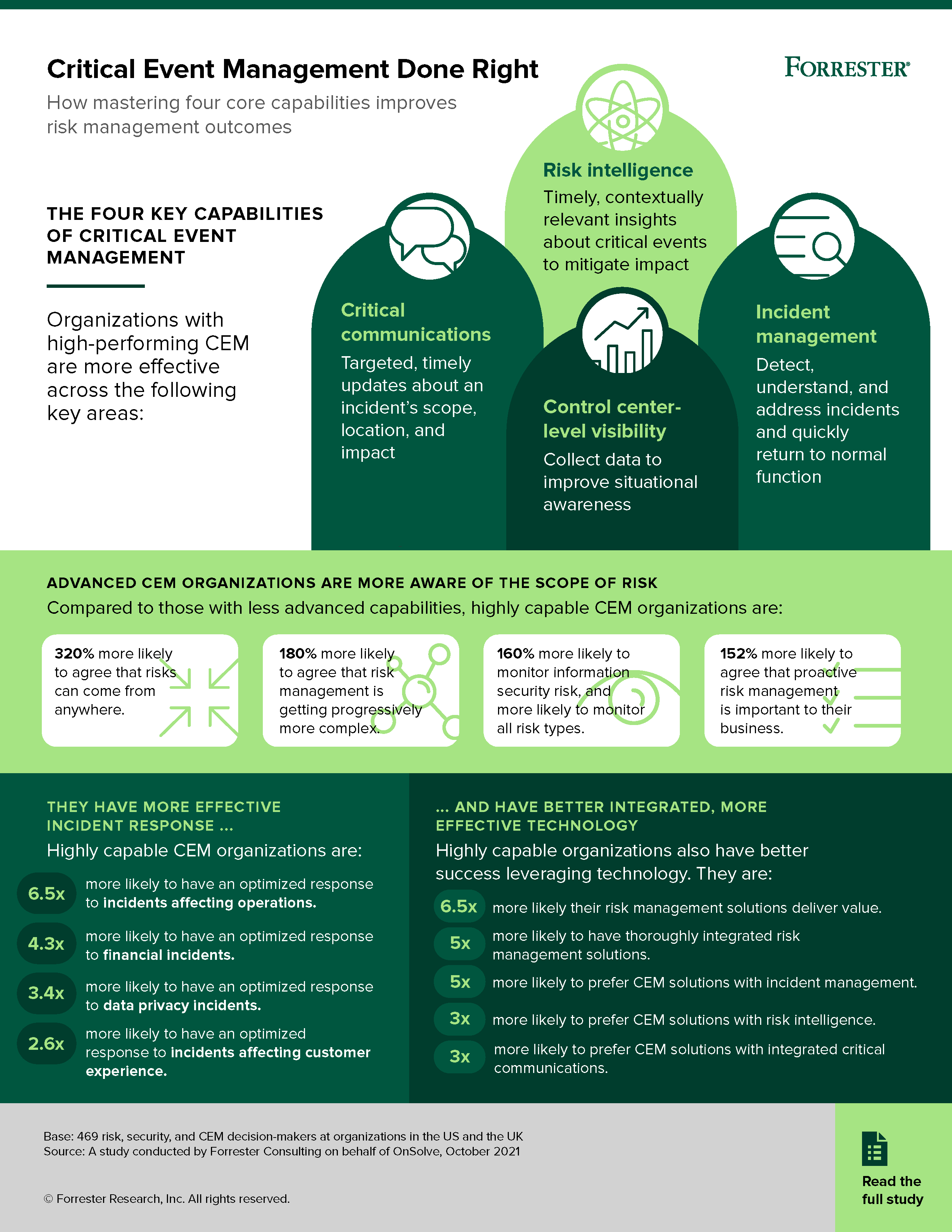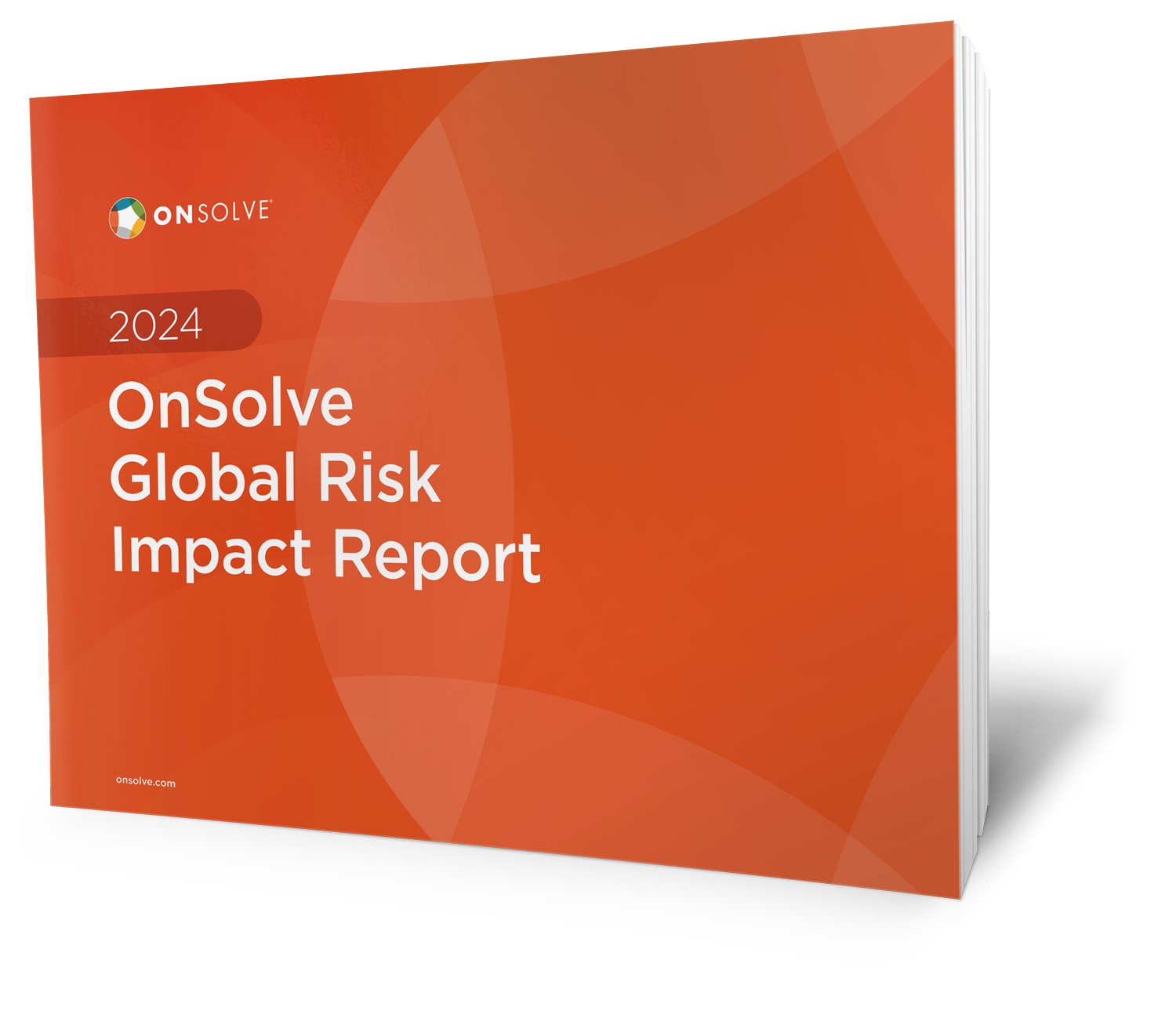It’s not news that our world grows more complicated every day. Whether it’s COVID variants, severe weather, active shooters or cybercrime, it seems risk is constantly increasing. Yet when we become desensitized to this ever-encroaching threat landscape we often begin to take protective measures for granted or overestimate their effectiveness.
So how do we maintain a proactive posture and increase organizational resilience?
From prevention to post-event resolution, it’s vital to have a thorough strategy for critical event management (CEM) in place. But what does this mean exactly – and what can we learn from successful organizations about how to prepare for the next critical event?
For one thing, it’s clear they don’t fail to underestimate the potential for risk. Adept CEM organizations are 320 percent more likely to agree that risks can come from anywhere, according to a recent commissioned study by Forrester Consulting on behalf of OnSolve.
Further, they’ve not only prepared. They’ve also worked hard to master four core critical event management competencies:
- Risk intelligence: The ability to proactively identify critical events.
- Critical communications: The ability to get the right information to the right people at the right time.
- Incident management: The processes and capabilities to efficiently coordinate responses.
- Control center-level visibility: For a 360-degree view of how an event is impacting their operations.
When organizations master these core competencies, their responses are faster and more cohesive. Research bears this out: Organizations with highly capable CEM are 6.5 times more likely to have an optimized response to incidents affecting operations, as compared to those with lower-performing CEM strategies, according to the commissioned Forrester study.
In addition, organizations that utilize integrated platforms are much more effective at leveraging technology to its greatest advantage. And a mastery of the four core competencies yields tangible benefits, including reduced damages, improved business continuity and greater overall organizational resilience.
As risk management becomes progressively more complex, the need for organizations to plan and prepare has never been greater. Organizations that make it a priority today to master the core CEM competencies will be best prepared for anything unexpected that comes their way tomorrow.
Failing To Plan Is Planning To Fail: Take A Proactive Approach To Critical Event Management To Improve Risk Preparedness
Download the full commissioned study conducted by Forrester Consulting on behalf of OnSolve, and gain more insights into the "why" behind effective strategies to manage critical events.



